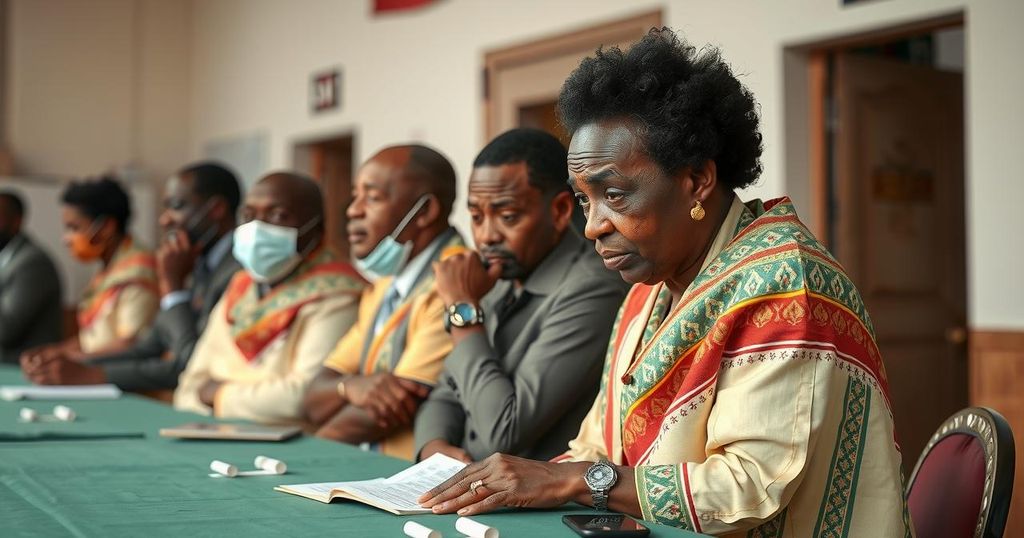Chad’s First Parliamentary Elections in a Decade: A Complicated Path to Democracy

Chad is voting in its first parliamentary elections in over a decade, amidst significant opposition boycotts alleging a lack of fairness. The elections follow a transitional period post-Idriss Deby’s death, with Mahamat Deby taking power. Rights groups call attention to security challenges and question the inclusivity of the electoral process, while the ruling MPS is poised to maintain its dominance.
Chad is conducting its first parliamentary elections in over a decade, marking a significant moment in its political landscape. The elections, held on Sunday, sought to conclude a transitional government period that followed the passing of long-time leader Idriss Deby Itno in 2021. Mahamat Idriss Deby, his son, assumed power amidst widespread calls for democratic reforms. However, the election process is marred by skepticism as numerous opposition parties have chosen to boycott the polls, dubbing them a mere façade meant to legitimize a political dynasty. More than 8.3 million registered voters are expected to cast ballots for candidates vying for seats in the 188-member parliament. Delayed for financial and historical reasons, the last elections occurred in 2011, leading to civil unrest and accusations of governmental repression. Rights groups and political analysts express concerns regarding the fairness of the upcoming elections, particularly given the absence of substantial opposition participation. The ruling Patriotic Salvation Movement (MPS) is anticipated to strengthen its grip on power, aggravating tensions with boycotting parties and civil society actors.
Chad has not held parliamentary elections since 2011 due to various postponements attributed to financial constraints and the global COVID-19 pandemic. The recent death of President Idriss Deby Itno led to his son Mahamat Idriss Deby taking power while promising democratic governance. In the wake of this transition, the political environment has been characterized by repression, opposition protests, and claims of electoral malpractice. Moreover, Chad faces numerous security challenges, including conflicts with Boko Haram and instability along its borders with Sudan, complicating the push for democratic elections.
Chad’s parliamentary elections symbolize a crucial step towards potential democratic governance; however, the boycott from multiple opposition parties raises significant questions about their credibility and fairness. Rights organizations urge for inclusivity and transparency while key political actors, including the MPS, prepare to solidify their power. The state’s ability to foster a democratic environment is currently under scrutiny amid allegations of repression and autocracy.
Original Source: www.aljazeera.com








